Grains Low in Net Carbs
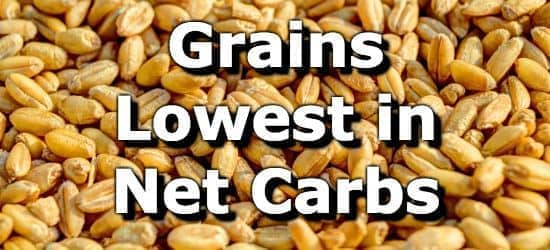
Whole grains are a good source of fiber, vitamins, and minerals. They also contain carbohydrates (sometimes known as “carbs”), which serve as a source of energy for the body.
The total carbohydrates listed on a food label include multiple different types of carbohydrates, including sugars, starches, and fiber. Fiber is a type of carbohydrate that the human digestive system cannot break down. (1)
Most types of carbohydrates cause a rise in blood sugar. Because of this, people with diabetes usually try to control how many carbs they consume. Those using insulin therapy generally benefit from adjusting their dose of insulin based on their carb consumption. (2)
People may also choose a diet lower in carbs for other health-related reasons. Research on low-carb diets has been mixed, with some studies showing health benefits while others show significant risks. (3,4,5)
Because fiber can’t be broken down in the small intestine, the carbohydrate it contains is not absorbed and doesn’t raise blood sugar. Those who are trying to reduce carbohydrates generally don’t need to reduce fiber. In fact, studies have found that eating fiber helps to improve blood sugar control in people with type 2 diabetes. (6)
The term “net carbs” refers to the total carbohydrates in a food minus the amount of fiber. (7) This gives a better sense of how many carbs will actually be absorbed from the food.
For more grains low in net-carbs see the complete ranking of grains low in net-carbs.
List of Grains Low in Net-Carbs
-
 1. Oatmeal + Add
1. Oatmeal + Add
Net-carbs
per CupNet-carbs
per 100gNet-carbs
per 200 Calories24.1g 10.3g 29g -
 2. Soba Noodles + Add
2. Soba Noodles + Add
Net-carbs
per CupNet-carbs
per 100gNet-carbs
per 200 Calories24.4g 21.4g 43.3g -
 3. Bulgur (Cracked Wheat) + Add
3. Bulgur (Cracked Wheat) + Add
Net-carbs
per CupNet-carbs
per 100gNet-carbs
per 200 Calories25.6g 14.1g 33.9g -
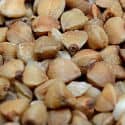 4. Buckwheat + Add
4. Buckwheat + Add
Net-carbs
per CupNet-carbs
per 100gNet-carbs
per 200 Calories29g 17.2g 37.5g -
 5. Whole Wheat Pasta + Add
5. Whole Wheat Pasta + Add
Net-carbs
per CupNet-carbs
per 100gNet-carbs
per 200 Calories30.6g 26.2g 35.1g -
 6. Cornmeal (Grits) + Add
6. Cornmeal (Grits) + Add
Net-carbs
per Cup CookedNet-carbs
per 100gNet-carbs
per 200 Calories30.7g 13.2g 40.5g -
 7. Wild Rice + Add
7. Wild Rice + Add
Net-carbs
per CupNet-carbs
per 100gNet-carbs
per 200 Calories32g 19.5g 38.7g -
 8. Gluten Free Corn Pasta + Add
8. Gluten Free Corn Pasta + Add
Net-carbs
per CupNet-carbs
per 100gNet-carbs
per 200 Calories32.4g 23.1g 36.7g -
 9. Quinoa + Add
9. Quinoa + Add
Net-carbs
per CupNet-carbs
per 100gNet-carbs
per 200 Calories34.2g 18.5g 30.8g -
 10. Couscous + Add
10. Couscous + Add
Net-carbs
per CupNet-carbs
per 100gNet-carbs
per 200 Calories34.3g 21.8g 39g -
 11. Spinach Egg Noodles + Add
11. Spinach Egg Noodles + Add
Net-carbs
per CupNet-carbs
per 100gNet-carbs
per 200 Calories35.1g 22g 33.3g -
 12. Pearl Barley + Add
12. Pearl Barley + Add
Net-carbs
per CupNet-carbs
per 100gNet-carbs
per 200 Calories38.3g 24.4g 39.7g -
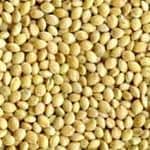 13. Millet + Add
13. Millet + Add
Net-carbs
per CupNet-carbs
per 100gNet-carbs
per 200 Calories38.9g 22.4g 37.6g -
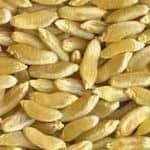 14. Kamut (Khorasan - Wheat) + Add
14. Kamut (Khorasan - Wheat) + Add
Net-carbs
per CupNet-carbs
per 100gNet-carbs
per 200 Calories40.1g 23.3g 35.3g -
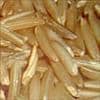 15. Brown Rice + Add
15. Brown Rice + Add
Net-carbs
per CupNet-carbs
per 100gNet-carbs
per 200 Calories42.3g 21.7g 38.8g -
 16. Teff + Add
16. Teff + Add
Net-carbs
per CupNet-carbs
per 100gNet-carbs
per 200 Calories43g 17.1g 33.8g
From the Nutrient Ranking Tool
Use the ranking tool links below to select foods and create your own food list to share or print.
- Foods High in Net Carbs
- Foods Low in Net Carbs
- Vegetables High in Net Carbs
- Fruits High in Net Carbs
- Vegetarian Foods High in Net Carbs
- Nuts High in Net Carbs
- Grains High in Net Carbs
- Beans High in Net Carbs
- Dairy High in Net Carbs
- Breakfast Cereals High in Net Carbs
- Fast Foods High in Net Carbs
View more nutrients with the nutrient ranking tool, or see ratios with the nutrient ratio tool.
Related
Data Sources and References
- National Library of Medicine - High Fiber Diet. Aelia Akbar; Aparna P. Shreenath.
- H Ibrahim SM, Shahat EA, Amer LA, Aljohani AK. Effect of adherence to carbohydrate counting on metabolic control in children and adolescents with type 1 diabetes mellitus Cureus. 2023 Nov 18;15(11):e48998. doi: 10.7759/cureus.48998. eCollection 2023 Nov. 38111457
- Goldenberg JZ, Johnston BC. Efficacy and safety of low and very low carbohydrate diets for type 2 diabetes remission: systematic review and meta-analysis of published and unpublished randomized trial data BMJ. 2021 May 24;373:n262. doi: 10.1136/bmj.n262. 34031034
- Joo M, Moon S, Lee YS, Kim MG. The Effect of Low-Fat and Low-Carbohydrate Diets on Weight Loss and Lipid Levels: A Systematic Review and Meta-Analysis Nutr Rev. 2023 Oct 10;81(11):1393-1401. doi: 10.1093/nutrit/nuad017. 36931263
- Noto H, Goto A, Tsujimoto T, Noda M. Low-carbohydrate diets and all-cause mortality: a systematic review and meta-analysis of observational studies PLoS One. 2019 Feb 7;14(2):e0212203. doi: 10.1371/journal.pone.0212203. eCollection 2019. 30730988
- Schadow AM, Revheim I, Spielau U, Dierkes J, Schwingshackl L, Frank J, Hodgson JM, Moreira-Rosário A, Seal CJ, Buyken AE, Rosendahl-Riise H. Effects of soluble fiber supplementation on glycemic control in adults with type 2 diabetes mellitus: A systematic review and meta-analysis of randomized controlled trials Adv Nutr. 2023 Jan;14(1):30-43. doi: 10.1016/j.advnut.2022.10.008. Epub 2022 Dec 17. 36811592
- National Library of Medicine - Low-Carbohydrate Diet. Robert Oh; Brian Gilani; Kalyan R. Uppaluri.
Simplify Nutrition Tracking with MyFoodData!
Speedy Tools and Detailed Data FREEEasily analyze your meals to find the best foods for your goals.
✅ Use our recipe nutrition calculator and nutrition comparison tool.
✅ Access expert nutrition data tools and in-depth articles.
✅ Log foods and organize your recipes with a free account.


 Next ➞
Next ➞
